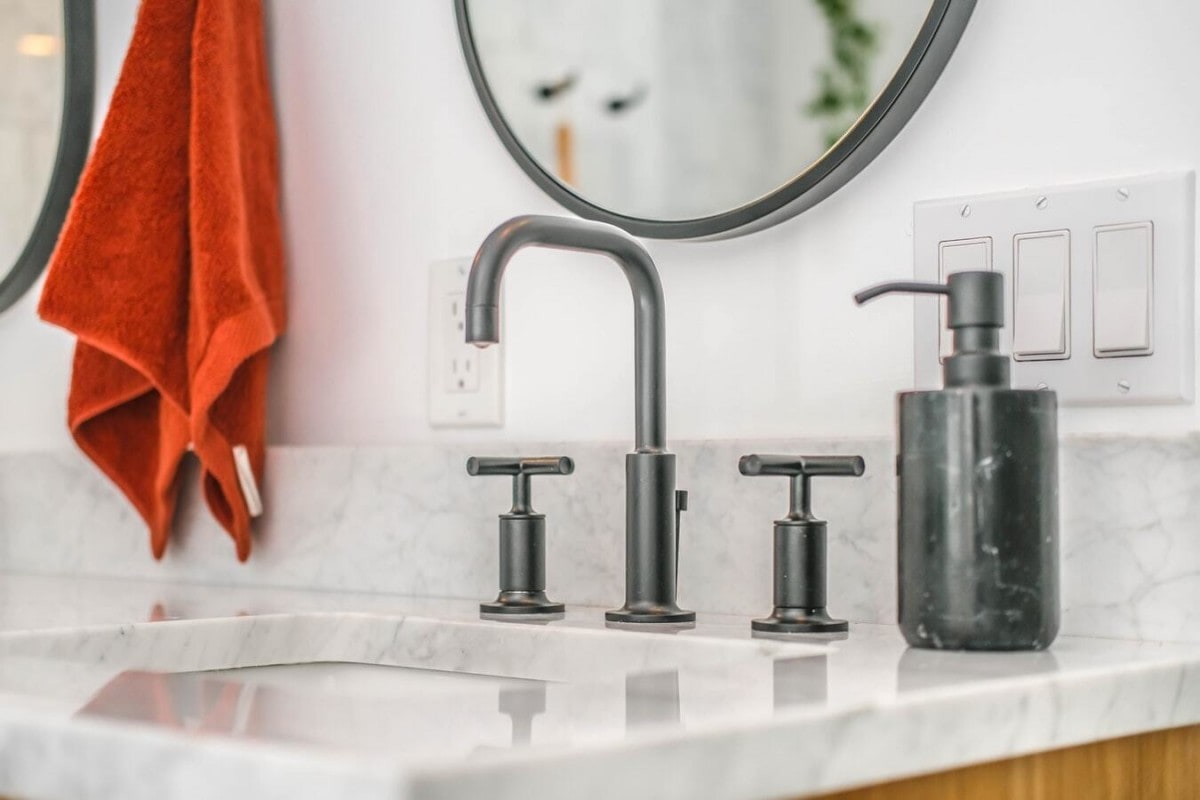A home inspection is a standard step in the homebuying process. While you may certainly wave this contingency in your offer letter, it’s recommended to have any home you’re looking to buy inspected. And not just anyone can perform the inspection, either. A certified home inspector is a trained professional who walks through the house and completes a thorough inspection to reveal problems in the home’s critical structures and systems, and ensure you know as much as you possibly can about the overall condition of the home.
So, what do home inspectors look for during an inspection? From the roof to the foundation, here are the main things home inspectors look for when inspecting a home:

1) The roof
A home inspector will look at the overall condition of the roof and how well it will protect the home from weather. A brand new roof with new shingles and underlayment can last up to 25-years with proper installation. However, most pre-existing homes won’t necessarily have a brand new roof and an inspector can give you a good idea of how long the current roof may last before it needs replacing.
Damage to the roof or shingles can affect the safety of the overall structure. A home inspector will be looking for these signs that may show visible deterioration or the presence of pests:
- Loss of texture on shingles
- Missing or loose shingles
- Curled shingles
- Rust on the flashing
- Excessive algae growth
- Unevenness or soft spots
- Moisture in attic or ceiling
Get pre-approved and secure your dream home
Work with a lender to find the right loan for the home you love.
2) Water damage
Get pre-approved and secure your dream home
An inspector will look carefully at the plumbing, the foundation, the roof, windows, and the area where the outside of the home and inside meet for evidence and sources of water damage. A minor crack in the foundation or siding can allow water to seep in and cause a range of problems, from mold growth to electrical damage, which will only worsen over time. Prevention is key to ensuring any costly surprises in the future, and an inspection can help bring these issues to light – saving you time and money in the future.
When inspecting for water damage, a home inspector looks for:
- Moisture in the attic or ceiling
- Bubbling or peeling wallpaper or paint
- Wet insulation
- Water staining around window frames
- Water staining on the basement ceiling
- Water staining on the flooring or discolored wood, tile, or vinyl
Water damage can affect ceilings, walls, and possibly lead to health problems for the buyer. It can also cause structural damage to foundations, which is the next area of concern.
3) The foundation
A home inspector will be looking at the structural soundness of the soil around the home. The presence or absence of water can cause changes in the soil around the foundation. When the ground tends to be drier during the summer, the soil contracts and pulls away from the foundation wall. If the ground around the home is not properly graded to slope away from the house, water will flow into the gaps left by dry soil.
Checking the foundation during the colder months is also critical to catching any significant foundation deterioration. When the ground freezes, it will expand and push against the foundation wall. This constant pressure and moisture can cause walls to shift over time, and even a slight shift, if not remedied, can compromise the structural integrity of the home.
When inspecting the foundation, the inspector looks for:
- Cracks or other evidence of a shift in basement walls
- Large cracks in interior walls or door frames
- Bouncy or uneven floors
- Gaps between walls and floors
- Gaps around windows or door frames
- Nails coming out of the walls
- Cracks in stonework or bricks
- Leaning stairs or porch
- Leaning or cracked chimney

4) The electrical system
According to the National Fire Protection Association, electrical failures or malfunctions caused 13% of home structure fires between 2012 – 2016. Unfortunately, electrical malfunctions can happen at any time and present a major safety hazard. An inspector will look at the visible wiring to ensure it’s in good condition. And if a home inspector sees an issue that could indicate a significant electrical problem, they may recommend a licensed electrician complete an inspection to ensure the electrical systems are up-to-date.
When inspecting the electrical system, an inspector looks for:
- Knob and tube wiring, which is no longer approved for home construction
- Exposed splicing or wiring
- Painted outlets
- Inadequately grounded three-prong plugs
- Double-tapped circuit breakers
- Modified electrical panels
- Aluminum wiring
- Missing GFCI protection
- More than one neutral wire in a slot
- Missing knockouts in panels
5) The heating and cooling systems
A home’s ventilation and HVAC system have many parts that can break down over time which can affect the home’s indoor air quality. When looking at a home’s HVAC system, a home inspector will run the system through every heating and cooling cycle to ensure there’s proper function and airflow throughout the home.
When inspecting the heating and cooling system, an inspector looks for:
- Rust around the furnace or air conditioning unit
- Dirty air filters
- Adequate gas flow to the unit
- Asbestos insulation
- Open seams in flues or slopes up to chimney connection
- Cracked ductwork
If an inspector identifies an issue with the heating and cooling system, they’ll recommend bringing in an HVAC professional to assess the damage.

6) The plumbing
Water can be a home’s number one enemy. Plumbing issues start out small and largely invisible and can remain unnoticed until a much larger problem becomes apparent. While minor leaks can damage wood, flooring, or drywall and can be easily repaired, rusted pipes and fixtures can be the sign of a much larger plumbing problem.
Visible rust could indicate a clogged pipe, which if left unchecked, can eventually lead to water leaks. When inspecting the plumbing, an inspector looks for:
- Rusty or broken pipes
- Galvanized pipes
- Clogged sewer line
- Polybutylene (plastic) piping
- Running toilets
- Polyethylene (plastic) piping
- Hidden leaks
- Rusted water heater
- Broken thermostat on the water heater
- Low or high water pressure
- Sediment build-up
When plumbing problems are evident, an inspector may recommend calling a licensed plumber for further inspection or repair.
7) Pest damage
Home inspectors will also look for signs of pest or rodent infestations. Both insects and rodents can carry diseases and parasites that are harmful to humans, and can also damage property by chewing on wiring and wood. Homes in areas with high humidity, such as homes in Miami, FL, or Houston, TX, may be more susceptible to damage from carpenter ants, beetles, and termites due to the increased moisture in the environment. These insects destroy wood and can severely damage a home.
If a home inspector finds signs of active pests or damage caused by a pest infestation, the seller will need to remedy the issue by hiring an exterminator and then assess the extent of the damage and conduct any repairs.
Home inspectors see homes in every condition – even a newly built house can reveal issues during a home inspection. However, keep in mind that not all issues found during an inspection are deal-breakers. The inspector’s report should provide reliable information so that the buyer and seller can negotiate on the home’s purchase price, along with accountability for any necessary repairs before you prepare for closing. Just remember, though your mortgage lender may not require you to get a home inspection, it’s always recommended to get one so you know what you’re buying. Learn more about how much a home inspection costs so you are prepared for your inspection.



























 United States
United States Canada
Canada